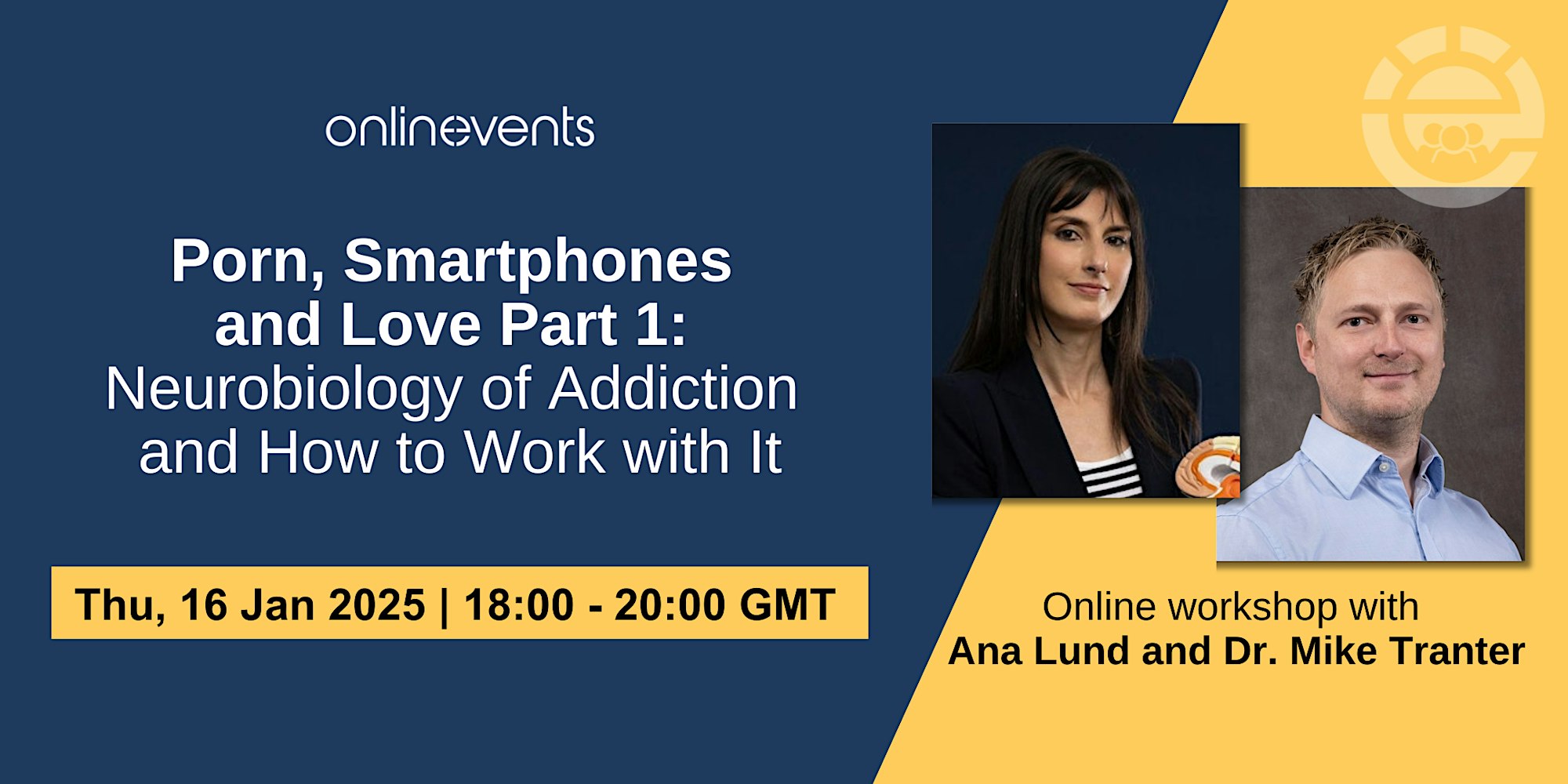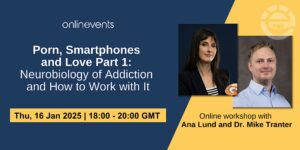About this event
Addictions seem to be everywhere, and because of its key role in the neurobiology of addictive behaviours, dopamine has become the most talked-about neurotransmitter today.
In this series of workshops, psychotherapist Ana Lund and neuroscientist Dr. Mike Tranter will guide you through the fundamentals of the neurobiology of addiction, with a focus on behavioural addictions, in a unique blend of neuroscience and hands-on psychotherapy tools.
We will explore the neural circuitry involved in each of the three stages of addiction and look closely at the role of dopamine in mechanics of addiction. We will see how we can use that to inform our work with clients. We also will debunk several myths.
We will examine the commonalities and differences between substance addiction, behavioural addiction, and strong habits from a neurobiological perspective, and discuss how to leverage this knowledge in therapy.
We will focus particularly on pornography, smartphones and the sex addiction, without hot air and prejudice, and basing ourselves on facts.
In the second part, amongst other things, we will explore whether romantic love can, under certain conditions, fall into the category of addiction. We will highlight the intersections between addiction circuitry and the neural pathways involved in intense romantic love.
Outline Part 1
- Fundamentals of neural circuitry of addiction – the brain areas
- Fundamentals of the process of dopamine-dependent behavioural addiction
- The three stages of addiction and their neurobiology
- The difference and similarities between substance addiction, behavioural addiction and habits
- Neuroscience informed toolbox for working with addiction
Learning Objective Participants Can Expect From This Event
- Becoming familiar with the fundamentals of neuroanatomy of addiction circuits in the brain including the basic elements of dopamine signalling
- Understanding the differences and similarities between substance addiction, behavioural addiction and habits and learning how to leveraging this knowledge in when working with clients
- Acquiring a neuroscience-informed toolbox for working with behavioural addiction
Who is This Workshop Appropriate For?
- Psychotherapists, counsellors, mental health professionals.
How May This Workshop Impact Your Practice?
- Providing clarity on neurobiology of addiction and equipping them with neuroscience-informed tools for working with behavioural addictions
ZOOM
This workshop will be hosted on the Zoom meeting platform where we will use our cameras and microphones to interact with each other as a group.
SELF-SELECT FEE
The self-select fee is a radical inclusion policy to open learning for all colleagues. The guide price for this event is £20.00, however, we appreciate that income varies greatly in different locations and circumstances. Please contribute what you can to help us maintain inclusive professional training.
___________________________
All the colleagues at ONLINEVENTS and the presenters we collaborate with are committed to working in a manner consistent with the BACP Ethical Framework, which can be accessed on the link below. When registering for this event you are agreeing to be present and interact in a manner that is consistent with this Framework.
Ana Lund

Ana is a psychotherapist working in private practice in the picturesque town of Ramsbottom, north of Manchester. Ana is passionate about combining neuroscience and psychotherapy. She spends much time pondering and discussing related topics with her colleagues.
Ana has a PhD in Computational Biology and worked in science for a number of years before becoming a psychotherapist.
In her free time, if she is not geeking out on the latest affective neuroscience book or podcast while running in the hills, Ana is probably spending time with her little boy or trying to reach the inner peace using mindful meditation.
Website | www.neuroscienceandpsychotherapy.com/
Facebook | Neuroscience & Psychotherapy
X | @AnaNeuroGeek
Instagram | ananeurogeek
LinkedIn | Ana Kozomara-Lund
Dr. Mike Tranter

Mike, originally from the UK, is neuroscientist and best-selling author, who now resides in San Diego, California. His research interests focus on decision making in the brain, particularly in mental illness. His passion for science communication and encouraging scientists and non-scientists alike, to follow their curiosity, is a constant source of energy and joy, along with his dog/best friend.
Website | www.aneurorevolution.com/
Instagram | theenglishscientist
LinkedIn | Michael Tranter



